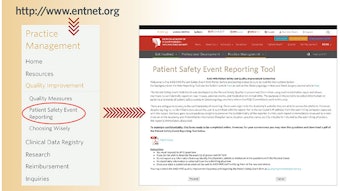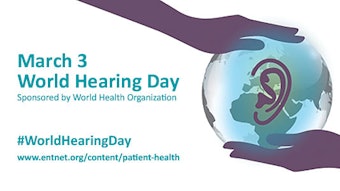Board of Governors: What is the big deal with “big data?”
Medicine is going through growing pains. Physicians are encumbered by a growing burden of compulsory administrative and clinical tasks, many in the name of gathering huge volumes of data intended to help guide how medicine is practiced in the future.
Lance A. Manning, MD
Chair, BOG Socioeconomic & Grassroots Committee
 Lance A. Manning, MD Chair
Lance A. Manning, MD Chair
BOG Socioeconomic & Grassroots Committee
But why? What is the value of this big data? Why have so many medical specialty societies invested major resources into data registries? Why does the leadership in our specialty, including the Executive Committees and Board of Directors, support the Reg-ent registry in our specialty?
The obvious answer is that Medicare Access and CHIP Reauthorization Act (MACRA) legislation mandates that the Centers for Medicare & Medicaid Services (CMS) transition to “value-based” payment models. Fulfilling this mandate in a sensible way requires CMS to analyze volumes of data to define “value” and to monitor its application. The grand vision of this endeavor is to harness the large-scale digitization of health information to deliver better health outcomes at lower cost. By aggregating more and more information and modeling this data, it is believed that patterns can be identified that lead to actionable, evidence-based insights in healthcare delivery that will enhance the decision-making abilities of healthcare-related entities. Ultimately, this may allow for predictive care not only on the public health macro level, but also on an individual patient point-of-care level.
Along with many other physicians, I feel the increased burden brought about by quality reporting requirements as we navigate the iterative changes resulting from MACRA. We work to identify and understand the intent of various quality measures. We make requisite changes in our workflows, and in those of our clinical staff, and office systems. We strive to make sure that the quality practices we are performing are translated in the proper format to be documented in our electronic medical records and practice- management information technology systems. We endeavor to become not only experts in quality clinical practice but also experts in quality reporting, which are not necessarily the same thing.
When changes occur, there is a natural tendency to fear what may lie ahead. Yet, there is a list of exciting possibilities that might emerge as the fruit of these efforts relating to big data. For example, disease outbreak prediction and intervention may be enhanced. Individual patients, who may benefit from proactive interventions that they are unaware of, can be sought. Other benefits may include clinical guideline development, genomic analysis, fraud analysis, and safety monitoring with negative event prediction. As our population ages and subsequently requires more care, there is also an increased need to leverage our existing resources by applying technologies that may increase efficiency, such as telemedicine, remote management, and wearable technology. In short, the overall purpose of big data in medicine is to save lives, to improve health outcomes, and to lower the cost of providing care—all of which are laudable aims.










